Apr 2, 2024 12:59 PM
Saxophonist, Sonic Explorer Casey Benjamin Dies at 45
Casey Benjamin, the alto saxophonist, vocalist, keyboardist and producer who stamped his distinctive sounds on the…
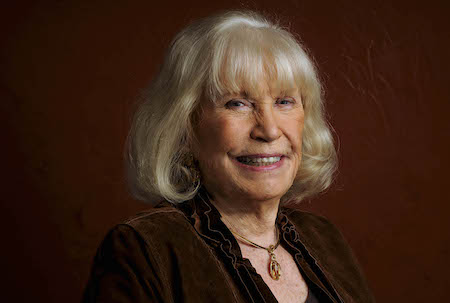
Gretchen Valade
(Photo: John Osler)EDITOR’S NOTE: As this edition of the DownBeat Enewsletter was about to go out, we learned of the passing of jazz philanthropist Gretchen Valade, who did amazing work on behalf of the music and the musicians who made it. She was 97. Below is an article from the November 2022 edition of DownBeat where Valade was given the DownBeat Lifetime Achievement Award for her hard work in the field. She passed on Dec. 30 surrounded by family at her Grosse Pointe Farms home near Detroit.
When you ask Gretchen Valade what’s near and dear to her heart, she might just shoot back, “Coffee!” and laugh, as she did during a 2017 interview with DownBeat. She’s telling the truth, of course, but there’s something else that is much more obvious and important to her — jazz, and the musicians who play it.
Valade, the nonagenarian heiress to Carhartt, the famed workwear and outdoor apparel company, may be the most important jazz angel in the past 30 years, beginning with the founding of Mack Avenue Records to saving the Detroit Jazz Festival to opening the Dirty Dog Jazz Club just north of Detroit to endowing the Gretchen Valade Jazz Center at Wayne State University located in the city that she loves.
For all of these reasons, Valade is the 2022 recipient of the DownBeat Lifetime Achievement Award for recording (and in her case, so much more), but her journey began, almost accidentally, with a song.
Valade grew up in Grosse Pointe, Michigan, the tony suburb just north of Detroit. Her journey to jazz began as a result of her sisters, who were a decade or more older. They played the music of Armstrong and Ellington and Ella Fitzgerald et al., music that a 6-year-old Gretchen soaked up and adopted as her own.
“And Billie Holiday,” Valade is quick to add. “She’s one of the first I ever heard.” While Ella was smooth and sophisticated, Holiday sang with a grittiness that rang true for a woman who gets a kick out of calling herself a “broad” from time to time.

Valade learned to play the piano, but stopped once she heard “the real piano players who make this music.” But her love affair with the art form endured. As a young woman, she went to school in New York City to continue her jazz education in places like the Village Vanguard and Eddie Condon’s. “I went to, um, they call it a finishing school, and it almost finished me,” she said in the short documentary When I Need To Smile. The scene cuts to a rapid-fire of the 400 Restaurant hawking Jimmy Dorsey, The Stork Club, El Morocco and Eddie Condon’s. “It was all right. It was in New York City. I just wasn’t interested in school. Some people just aren’t.”
What she was interested in was hearing music. “Sydney Bechet was very good for my education. Eddie Condon. Wild Bill Davidson, Pee Wee Russell.”
Later in life, she started to write songs, then looked to record them. The first, a song called “When I Need To Smile.”
She met Stix Hooper, the legendary leader of the Crusaders. He suggested doing a demo and seeing where it went.
“Nobody had been interested in my songs before Stix Hooper, and he said, ‘Well, we’ll do a demo.” And I said, ‘Oh, well, if you insist,’” Valade noted in the documentary.
Recording a few tunes turned into starting a record label. And Mack Avenue Records, named after a thoroughfare that runs from Detroit through the city’s northern suburbs, was born. The label’s first release was When I Need To Smile, by pianist Eugene Mazlov. It was released in 1999, the title cut being one of Valade’s. With that, Mack Avenue opened for business. As luck, or lack of it, would have it, the label launched at a time when many jazz labels were closing up shop, victims of the early transition to digital streaming services.
“That my signal! Something’s gone wrong,” she laughs, noting that she has a history of entering when things look, well, bleak. But in some ways, the timing was good for a new label. A host of artists began knocking on Mack Avenue’s door. The company put a professional team in place to make things happen. And Mack Avenue turned quickly from a startup to one of the most influential labels in jazz, releasing albums by George Shearing, Gerald Wilson, Cécile McLorin Salvant, Kenny Garrett, Stanley Jordan, Christian McBride and so many more.
For Valade, it became a crusade to help the musicians and music she so admired. That crusade turned local in 2005 when Valade heard that the Detroit Jazz Festival was about to shut down. She rescued the 2005 festival with a $500,000 donation and another $100,000 in in-kind donations from Mack Avenue Records. Later that year, she pledged to endow the festival with a $10 million donation to ensure it continued — free to the public, an important point for her. In all, she has donated some $15 million to the Detroit Jazz Festival Foundation, ensuring its health going forward.
Valade also looks to the next generation of jazz in Detroit with her philanthropy. Over the years, she has gifted $9.5 million to Wayne State University, the money being used to build the Gretchen Valade Jazz Center as well as the Gretchen Valade Endowed Chair to serve as artistic director for the center and the Gretchen Valade Endowed Scholarship in Jazz Studies, offering a graduate assistantship for the center.
“We call her the Angel of Jazz,” said Chris Collins, the saxophonist who directs the jazz studies program at WSU, and serves as president of the Detroit Jazz Festival Foundation as well as being the fest’s artistic director. “She’s created tremendous synergy. It’s a great reflection of the jazz heritage here, and the university is becoming the new gravity center of the city’s arts community.”
That local spirit and love of jazz has also extended very locally to Grosse Pointe, where Valade lives. When a building she owned became vacant, there was a question of what to do. Rent it out again? No. Valade decided to strip it down and create a jazz club, and the Dirty Dog Jazz Café was born in 2008. Built to reflect those small New York clubs, with plenty of jazz photographs and paintings on the walls, where the sound is sweet and the audience hears the music up close and personal, it’s a listening room for about 75 guests at a time, where musicians come first. Valade insisted that musicians were paid well, fed well and treated well.
“I like the musicians to be happy,” she has said. “Then, the audience will be happy.”
To that point, The Dirty Dog features something that few other local clubs can offer, a first-class “green room” for musicians to relax in when not performing.”
“That’s something I really wanted,” Valade said. “I think it came to me when we went to the Village Vanguard in New York. I said, ‘Where’s your green room?’ And he pointed to the kitchen. And I said, ‘No, no, no. Don’t kid around. Where’s your green room?’ And a guy said, ‘That’s it.’ I’m thinking, ‘They change their clothes in there, in the kitchen, with the fried eggs?’”
The only eggs Valade wants to see are maybe next to a nice steak for the musicians before a set. In years past, she could usually be found in her seat at the bar for the first set, cheering on jazz musicians young and old, locally grown or internationally famous.
“I think there is a certain part of all of us who meet Gretchen, who secretly think that, ‘Wow, I’d really like to be that when I grow up,” said Denny Stillwell, president of Mack Avenue Records, in When I Need To Smile.
With this DownBeat Honor, it’s only fitting that a musician gets the last word.
“At the Dirty Dog, it’s all about the music,” said saxophonist and Detroit legend David McMurray in 2017. “Detroit jazz champion and club proprietor Gretchen Valade makes sure of it. Because she respects the music and the artists, the audience does, too. They come to listen. As a jazz musician, it’s always better to play where people love and appreciate the music.
“The atmosphere is so intimate — I feel like I’m in Gretchen’s living room. She presents the music she loves with all who share her passion for jazz, whether they’re new to the music or long-time fans.”
In honor of the artists, the label professionals and the fans, we salute Gretchen Valade. DB
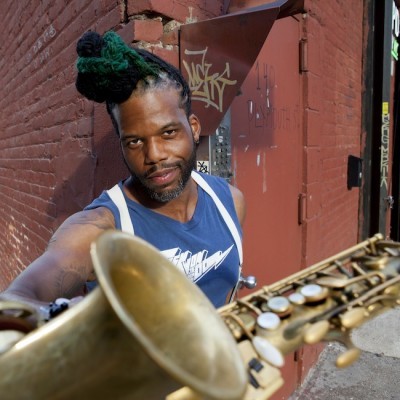
Benjamin possessed a fluid, round sound on the alto saxophone, and he was often most recognizable by the layers of electronic effects that he put onto the instrument.
Apr 2, 2024 12:59 PM
Casey Benjamin, the alto saxophonist, vocalist, keyboardist and producer who stamped his distinctive sounds on the…
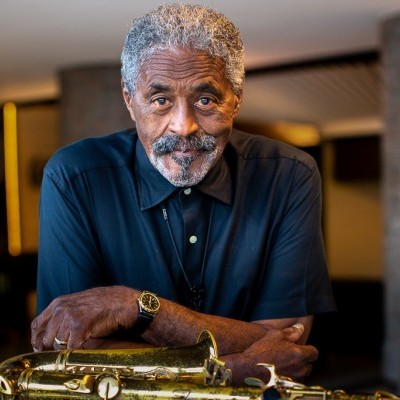
“He’s constructing intelligent musical sentences that connect seamlessly, which is the most important part of linear playing,” Charles McPherson said of alto saxophonist Sonny Red.
Feb 27, 2024 1:40 PM
“I might not have felt this way 30 to 40 years ago, but I’ve reached a point where I can hear value in what people…
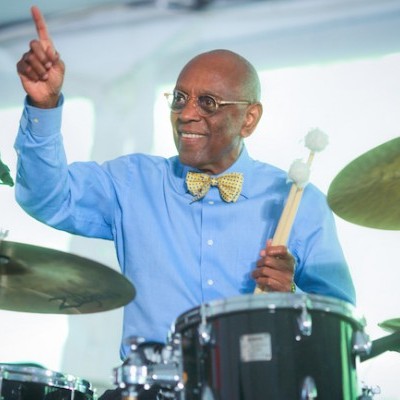
Albert “Tootie” Heath (1935–2024) followed in the tradition of drummer Kenny Clarke, his idol.
Apr 5, 2024 10:28 AM
Albert “Tootie” Heath, a drummer of impeccable taste and time who was the youngest of three jazz-legend brothers…
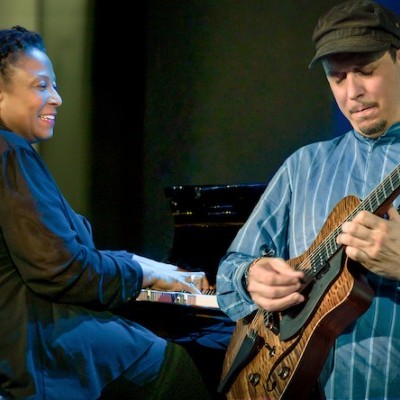
“Both of us are quite grounded in the craft, the tradition and the harmonic sense,” Rosenwinkel said of his experience playing with Allen. “Yet I felt we shared something mystical as well.”
Mar 12, 2024 11:42 AM
“There are a few musicians you hear where, as somebody once said, the molecules in the room change. Geri was one of…

Henry Threadgill performs with Zooid at Big Ears in Knoxville, Tennessee.
Apr 9, 2024 11:30 AM
Big Ears, the annual four-day music celebration that first took place in 2009 in Knoxville, Tennessee, could well be…